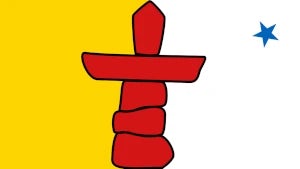Nunavut Personal Tax System
Nunavut operates on a tax-on-income system where residents pay both federal and territorial income taxes through a single tax return administered by the Canada Revenue Agency. The territory employs a progressive tax structure with four brackets ranging from 4% on the first tax bracket to 11.5% for the highest earners. These rates are among the lowest in Canada, designed partly to offset the high cost of living in this remote northern territory.
Nunavut residents benefit from the Northern Residents Deduction, a significant tax advantage that includes both a residency deduction for living in a prescribed northern zone and a travel deduction for eligible trips. This federal deduction can substantially reduce taxable income for those who have resided in the territory for a continuous period of at least six consecutive months.
The territory offers various tax credits and benefits including the Nunavut Cost of Living Tax Credit, a refundable credit designed to help offset the high cost of goods and services. Nunavut also provides a Child Benefit for low-income families with children and a Senior Citizen Supplementary Benefit to assist elderly residents. These programs work alongside federal benefits like the Canada Child Benefit and GST/HST credit.
Like Yukon, Nunavut applies only the federal Goods and Services Tax (GST) of 5% and has not implemented a territorial sales tax. This lower consumption tax rate helps mitigate some of the extremely high costs of consumer goods, which are significantly elevated due to transportation challenges and remote location factors.
The territory offers specific tax incentives for businesses operating in Nunavut, including a small business tax rate of 3% on the first $500,000 of active business income. These incentives are designed to encourage economic development and job creation in a challenging economic environment where infrastructure and operational costs are exceptionally high.
Nunavut's tax system recognizes the unique challenges of Arctic living through various income supports and tax advantages. The territorial government periodically adjusts its tax policies to address the extraordinarily high cost of living, geographical isolation, and the predominantly Inuit population's specific needs, balancing revenue generation with the imperative to make life more affordable in Canada's northernmost territory.
Northern Residents Deduction
The Northern Residents Deduction is a special tax benefit available to individuals who live in prescribed northern or isolated areas of Canada for at least six consecutive months during the tax year. It consists of two main components:
- Residency Deduction: A base amount for each day you lived in a prescribed northern zone (with higher amounts for those in "prescribed northern zones" versus "prescribed intermediate zones").
- Travel Benefits Deduction: Deductions for eligible trips taken by you or family members, particularly if you received travel benefits from your employer.
This deduction was implemented to recognize and offset the higher cost of living and isolation factors faced by residents in Canada's northern territories and remote regions. The amount you can claim depends on your specific location, as different areas qualify for different levels of deductions based on their remoteness and living conditions.
Nunavut Income Tax Brackets
Each year, the Federal and territorial income brackets and basic personal amounts in Nunavut are indexed based on the changes in the Canada’s consumer price index (CPI). The indexation factor is 1.027 or 2.7% for 2025 and it was 1.047 or 4.7% for 2024, meaning the amounts are increase by 2.7% for 2025 after they were increased by 4.7% for 2024. Nunavut’s income tax rates for the brackets will remain unchanged.
Nunavut Income Tax Brackets 2023-2025
| 2023 | 2024 | 2025 | Rate |
|---|---|---|---|
| Less than $50,877 | Less than $53,268 | Less than $54,707 | 4% |
| Over $50,877 to $101,754 | Over $53,268 to $106,537 | Over $54,707 to $109,413 | 7% |
| Over $101,754 to $165,429 | Over $106,537 to $173,205 | Over $109,413 to $177,881 | 9% |
| More than $165,429 | More than $173,205 | More than $177,881 | 11.5% |
The Nunavut Basic Personal Amount in 2023 was $17,925, which increased to $18,767 in 2024. It further increases to $19,274 for 2025. If you make less than $19,274, then you won’t have to pay any territorial income tax.
Nunavut Income Tax Credits
As a resident of Nunavut, you may be eligible for several income tax credits, such as:
- Age amount
- Disability amount
- Cost of living tax credit
- Political contributions tax credit
You can visit the Nunavut government website’s income tax page for more information about tax credits.
